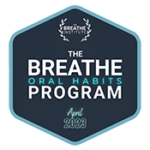If you haven’t heard of oil pulling, you may be thinking it sounds a little contradictory. Many of you probably know that oil is more of a slippery substance with little ability to really “pull” anything, but that is not the case with this type of oil pulling. Despite the advanced technology we have today, this ancient practice of oil pulling has come back from the old days to spike popularity and usefulness once again.

What is Oil Pulling?
The oil used for this process is typically coconut, sesame, sunflower, grapeseed, vegetable, or olive oil; it will work with whichever you choose. So what exactly do you “pull” with oil? Well, oil pulling isn’t what it seems, in fact, it is basically the use of oil as a mouthwash! The term “pull” is just another word for swishing liquid in your mouth, pushing and pulling it between your teeth.
This ancient ritual originated in Indian culture as a folk remedy for healing oral diseases and maintaining oral health, after all, tooth brushes and anti-cavity pastes have not been around forever! So what did people use to keep their mouth clean? Some discovered the powerful properties of rinsing oil in the mouth, particularly coconut oil. Of all the oils you can use, coconut oil has been studied and proven to be the most beneficial to your oral health. This is because it is high in fatty acid known as Lauric acid, which has antimicrobial and antifungal properties. Coconut oil is best unrefined, as is any oil you decide to use for oil pulling, since this is the purest, most natural form.
How Does Oil pulling Benefit Your Oral Health?
Did you know that your mouth is full of bacteria, good and bad? The truth is, there are a lot of germs in your mouth and they tend to sit on your teeth throughout the day between brushings. Certain bacteria can cause harm to your teeth, resulting in plaque buildup, the gum disease gingivitis, and cavities. Bacteria creates a film know as “biofilm” on your teeth which hardens and turns into plaque. Plaque must be scraped off your teeth at your routine dental cleanings and can cause many problems for your gums if too much of it is allowed to build. So you may be wondering, what part does oil have in the improvement of oral health? Interestingly enough, oil has the ability to “catch “ bacteria and act as a disposal trap. Coconut oil, compared to others, is preferred for pulling since it has antibacterial properties which add effectiveness to the practice. It also tends to taste better than that of olive or sesame oil.
Does It Really Work?
There are many testimonies from people who have tried oil pulling for themselves, with a vast majority containing positive feedback! In case you prefer the scientific evidence, there are also plenty of studies that have proven the claimed results of oil pulling. Here are a couple to get you started:
A study published in 2008 by the Journal of Indian Society of Pedodontics and Preventive Dentistry has shown: 20 adolescent boys who used oil pulling (using sesame oil) caused a reduction in the number of Streptococcus Mutans (bacteria responsible for tooth decay) in the plaque in as little as 2 weeks.
Another study compared oil pulling and regular mouthwash in 20 adolescents with plaque-induced gingivitis. Both oil pulling and the mouthwash were effective against their gingivitis.
How Does it Work?
Each time you swish the oil around in your mouth, it removes bacteria and has even been proven to remove plaque on and between the teeth.
An additional benefit to adopting this practice is that oil pulling also reduces bad breath. The chemical gases produced by the bacteria in your mouth are greatly reduced when you oil pull and, in a study of 20 adolescents, oil pulling reduced bad breath just as effectively as regular mouthwash!
So Why Not Give it a Try?
If you are curious and convinced that this could work for you, its really quite simple!
-
Choose an oil that is unrefined or organic, these tend to work the best.
-
Take about one teaspoon and put it in your mouth, begin to swish it around. Coconut oil is a butter-like consistency with a low melting point of about 78 degrees, so it will turn to oil rather quickly.
-
Swish the oil for about 15-20 minutes.
-
Spit out all the oil and brush your teeth
It is best to do your oil pulling on an empty stomach before you brush your teeth. Some of you may think that 15-20 minutes is a long time to swish slimy liquid in your mouth, but if you do it in the shower, while you make breakfast, or get ready for the day, it will be over before you know it. Relax your face and jaw and gently “push and pull” the oil around in your mouth to prevent your jaw from becoming sore. Be sure to spit out all the oil since it will contain plaque and bacteria from your teeth! Oil pulling is not recommended for young children since they are susceptible to swallowing the oil.
Give this practice a week or two and watch how it can whiten your teeth, freshen your breath, and help prevent cavities! If you have dental problems such as cavities or sensitivity, try oil pulling and see how it can help your teeth. Oil pulling is effective and beneficial to your oral health, so why not give it a try?
Sources:










